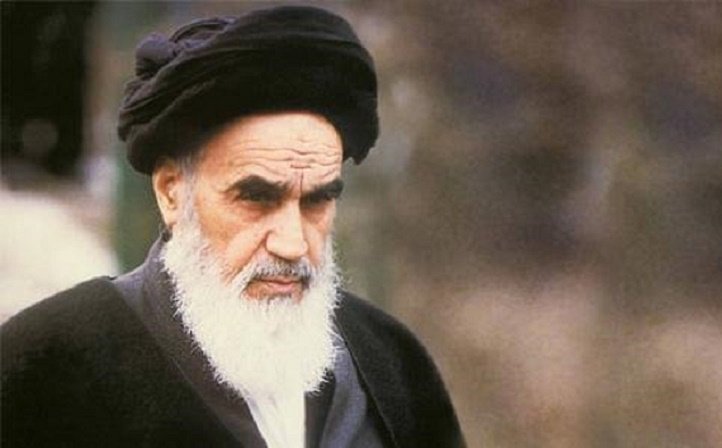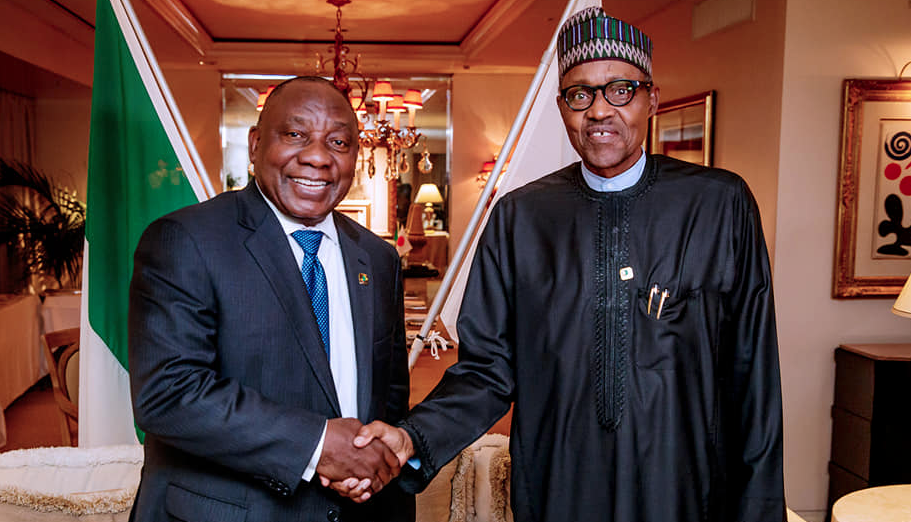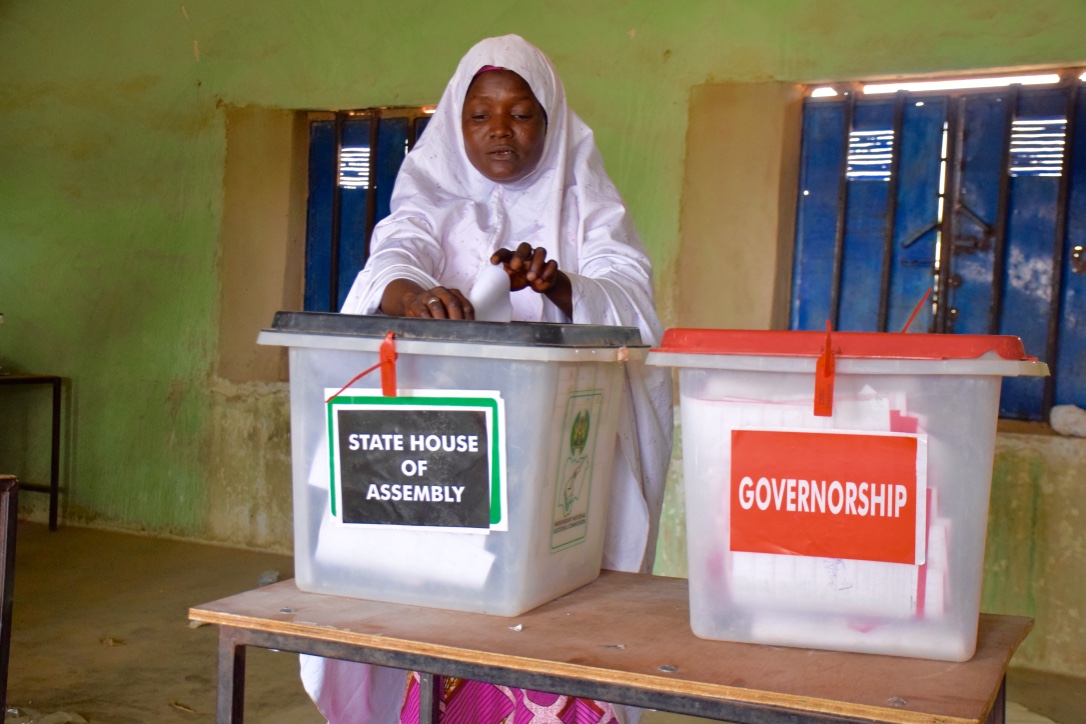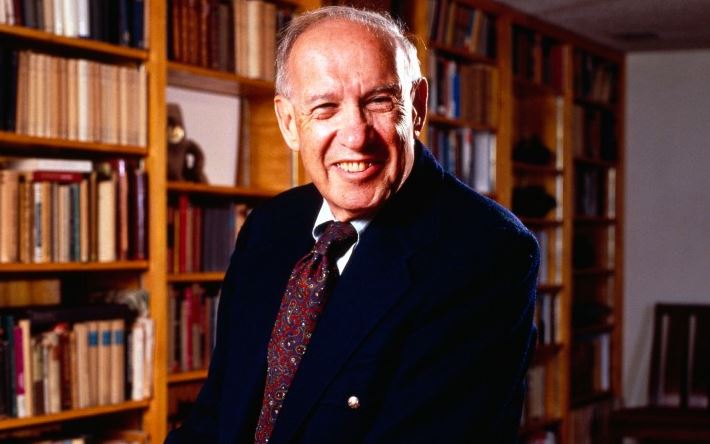For the Nigerian government under President Muhammadu Buhari, no two words carry with them today equal measure of excitement and objection as the words “change” and “revolution.” You can earn an unearned place at the top by simply professing to be a “change” apostle the same way you can be conferred with a Mussolini-like jailing with manacles affixed to your hands if “revolution” is what revs you. Same atmospherics of fear obtained during the first coming of General Buhari.
For fear of being jailed like Nduka Irabor and Tunde Thompson, writers simply embraced Afghanistanism, a practice that gained notoriety in the United States in the 1970s where, rather than comment on controversial issues at home, academics and writers turned their attention to issues in distant places. Today, some writers now avoid the use of “revolution” like a plague, choosing to euphemize the obvious fire that will burn if Nigeria continues along this ruinous path which government and its adulterous partners, the Nigerian elite, are leading them daily.
Last week, government again exhibited how scared stiff it was with that otherwise harmless word, “revolution.” In a 56-paragraph counter-affidavit it filed at the Federal High Court in Abuja last Wednesday, government advertised this palpable fear. The 1979 Iranian revolution, also known as the Islamic Revolution, which ushered in Ayatollah Khomeini, was a pestilence it feared Ibrahim Yaqoub El Zakzaky may harbour, the Buhari government confessed in the affidavit.
But, what evoked the Khomeini revolution in Buhari and what similar imprimatur do Zak-Zaky’s activities bear? Why is government this frightened? In 1977, Iranians had become very disillusioned with Mohammed Reza Shah Pahlavi, a pro-Western, United States of America-backed monarch whose reign gained global notoriety. By October of that year, demonstrations against the Shah had reached their apogee with civil resistance as strong as twine. The resistance literally paralyzed the country in 1978, so much that the Shah was forced to abdicate the throne on January 16, 1979. He headed for exile, making him the last of the Persian country’s monarchs. By the time he was leaving, however, Shah left a regency council and in the thick of this national melee, Khomeini, leader of one of the factions of the revolt, was invited, greeted by a tumultuous approval, amid heavy guerilla street fighting. On April 1, 1979, Iran officially voted in a referendum to become an Islamic Republic.
Advertisement
The Khomeini-led revolution took the globe by surprise because it essentially lacked basic ingredients of a revolution. Except for claim that it was its modern variant which had side-stepped hitherto-known qualifications of a revolution, there was no war, no surrender nor defeat; no détente, peasant rebellion nor a military that openly advertised its disavowal with the status-quo. This is because, at the time, Iran witnessed relative prosperity under the Shah who was relatively massively popular. However, Iranians suffocated under Shah’s authoritarian monarchy and since then, it would seem, America had never forgiven this overthrow of its stooge.
The cat and mouse game between the leader of Islamic Movement in Nigeria, El-Zak Zaky and the Buhari government has provoked attention in national discourses since 2015 when government’s authoritarian weapon was brought to bear on him. Born in 1953, Zak-Zaky is said to bear several traits of Khomeini. Radicalized during his studentship at the Ahmadu Bello University, Zaria between 1976 and 1979, this First Class student of Economics was equally hounded as now by successive military governments since the 1980s when the seed of revolt was planted in him. He is said to be heavily sponsored by the Iranian government and has a horde of loyalists who bear inexplicable allegiance to him.
Of a truth, no responsible government should stand by and allow an individual or group of persons to make the state ungovernable for it. Government has thus deployed all manner of tactics to keep El-Zak-Zaky out of circulation. In 2015 during a raid of his Kaduna hideout, hundreds of faithful were alleged to have been massacred, provoking mild rebuke from the Western world. Recently when public outcry ensured that government relaxed its paws on the flesh of the controversial Islamic sect leader, Buhari still kept tabs on him, right to a hospital in India.
Advertisement
It is with same ferociousness that government has pursued the detention of Omoyele Sowore, rights activist and Publisher who has been kept in isolation since August 2. Before Justice Nkeonye Maha of the Federal High Court in Abuja a few days back, government claimed that Sowore was on the verge of toppling the Buhari government. This is reminiscent of the vague and rebuttable allegations during the military era where alleged coup plotters were executed without prima facie evidence of their involvement in alleged government takeovers. Till today, it is said that no corroborative evidence was available in the conviction of the duo of Major Generals Iliya Bisalla and Mamman Vatsa.
In court papers it filed to keep Sowore in detention, the DSS alleged that the Sahara Reporters Publisher was in cahoots with “foreign collaborators” who gave him “millions of dollars” and that they indeed met in Dubai, United Arab Emirates on how to topple the Buhari government. Sowore immediately disclaimed this allegation and indeed said he had never been to the UAE before. But for a tacit judicial abetment of tyranny, evidence ought to have been led in defence of this claim and in its absence, governmental oppression of an innocent citizen established. The question that this provokes is, why does the Buhari government dread “change” this much and why does a government renowned for pussy-footing on matters that have to do with the people be in a relentless pursuit of self-serving matters it advertises as national interest?
In other words, is the detention of El-Zak Zaky and Sowore really a matter of national interest? Put differently, is government merely being frightened by its own shadows? Is the drive to hold them down a continuation of that infernal thirst akin only to military despots’ crave to assert themselves? Is the obsession of government with “revolution” a fear borne out of unfavourable reports daily dropped at the Villa that Nigerians are, more than ever before, persuaded that they had reached the end of their tethers and as such, awaiting a spark to take their destines in their own hands? These are the questions that beg for answers in this resurgence of government’s penchant to detain and hound dissenting voices.
Revolutions or quest to upturn a government other than through the ballot box can only work when an incumbent government is working against the people. In the Mohammed Reza Shah Pahlavi example in Iran cited above, the Khomeini revolution was able to upstage it because of its authoritarianism. Though there was relative peace under the Shah, that peace was got through the anvil of oppression of the people. And as the cliché goes, when peace finds no anchor in a society, violence easily offers self as a substitute. The way and manner in which the Buhari government is going about its resistance to a so-called revolution is archaic and incongruent with modern trend. If it deploys the mechanism of an equitable governance that is open and accountable, Nigerians themselves will fight anyone who advocates any form of governance outside of its democratic government. But because all the people see is a government managed by cronies, high on propaganda and very low in delivery of the basic ingredients of good life, Buhari and his co-travellers in this boat become so alien to the people and anyone who calls for its alienation receives applauses from them.
Advertisement
As I once said, the Buhari government should deploy its secret service goons to dispassionately feel the naked pulse of ordinary Nigerians on the street. What is uttered out is worse than the irreverent chants of El-Zak Zaky’s adherents. Unfortunately, those who surround government are a bunch of self-centred anarchists whose major thirst is the licit and illicit acquisitions they can liberate before its nocturnes. Otherwise, they should be man enough to walk up to the President and disclose the animosities and angst that have eaten up the length and breadth of Nigeria; same people who, barely five years ago, saw Buhari as saviour.
FBI 77 AS OUR MIRROR ON THE WALL
Engaging Ibadan, Oyo State capital, popular radio presenter, Edmund Obilo, yesterday engaged the trending national shame, American Federal Bureau of Investigation (FBI’s) 77-member list of allegedly fraudulent Nigerians which was unveiled last week. The FBI had unsealed the federal grand jury list of the US Attorney’s Office which indicted the Nigerians of involvement in fraud ring in the United States. On the list is said to be one Chika Odionyenma, earlier in the year appointed by the Imo State government as its official. Another suspect on the wanted list by the name Jerry Ikogho is said to be a buddy of the current federal minister of Niger Delta Affairs, rambunctious Festus Keyamo, a known violin through whom the Buhari government sang its irritating testimonials to the public.
Keyamo’s alibi was that he had been friends with Ikogho since youth. Africa Reports made a damming verdict of this dalliance between Nigerian government and known, established fraudsters last week. The magazine said: “Nigerian government officials have a long history of associating with suspected and convicted criminals, many of whom have been re-integrated into society without proper penance for their crimes,” some of whom included an Ogun State-based drug kingpin and shamelessly, ex-legislator who was also a “former governorship candidate… a principal character on which the TV showOrange’s The New Black is based. He escaped from a US prison where he had been convicted for drug-related charges.”
Advertisement
The magazine also named an Enugu State-based woman “who, with her husband, forfeited $242-million in what was perhaps the most brazen fraud outside Nigerian politics” and who is “currently chairperson of the Enugu State Waste Management Agency (ESWAMA) … sentenced to three years in prison by a Lagos court,” and “an associate of the late dictator Sani Abacha” who “”was elected governor of (a) northwestern state… in 2015,” and who “the year before, the US government froze more than $458m embezzled by the late General and laundered by him and others.” The magazine concluded that “People in power hobnobbing with people of questionable virtues and the metamorphosis of criminals from enemies of the state to being agents of the state itself (in Nigeria) are worrying trends.”
Earlier in the month of August, the arrest by same FBI had shocked a Nigerian world that had earlier flaunted its plumage like a peacock. Obinwanne Okeke, Chief Executive Officer of Invictus Group, earlier in 2016 announced as making Forbes’ Africa’s 30 Under 30 List, was arrested for conspiracy to commit computer fraud. FBI had begun his investigation in July 2018 over a $11m wire fraud he allegedly committed. He had allegedly hacked into an account belonging to the CEO of Unatrac Holding Limited, an American steel company. Marshall Ward, a Special Agent of FBI, in an affidavit deposed, alleged that FBI was contacted by representatives of the company upon experiencing the fraudulent transfer through a compromised email “Between April 6 and April 20, 2018, the intruder accessed the CFO’s account at least 464 times, mostly from Internet Protocol (IP) addresses in Nigeria,” deposed Ward.
Advertisement
Aside Okeke’s, the Economic and Financial Crimes Commission, (EFCC) always eager to earn positive rating in the passion of Nigerians, immediately began an advertised pursuit of the alleged fraudsters. Some are said to have been arrested and multiple of millions retrieved from them.
Obilo’s bother was that, while it is good that these vermin are being ferreted out of their hiding places, FBI is not deploying same energy, same institutional vivaciousness into repatriation and infliction of penance on those leeches in government and their allies who siphon Nigerian money to America, United Kingdom and other Western counties. Why does FBI announce its clinical efficiency only when these coal-black hearted Nigerians fleece America and repatriate the illicit monies to Nigeria?
Advertisement
The above question may sound ideological but it burrows into the marrows of the inequitable dealings that the Third World faces in the hands of the so-called developed nations of the world. For, if the fight, the frown and against crimes had been sweeping and equitable, Africans would not be smarting from the pestilence of her leaders who wire wealth from suffering African nations to the West which fertilize their already fecund economies. Obilo reminded his listeners that until Mobutu Sese-Seko became a thorn in the flesh of the world and a bad advertisement for its interventionism in Africa, the Zairean leader was a buddy of America. Indeed, his wealth, which in 1984 was estimated at US$5 billion, was safely stashed in western vaults.
The artificial shock that the Nigerian state and its people have been exhibiting since the revelation of the embarrassing list was released is however the most embarrassing in the orgy of revelations. The Buhari government’s claim that the fraudsters do not represent us as Nigerians is the most irresponsible lie I have heard in recent time. Those fraudsters are our poster boys as Nigerians. At the risk of sounding unpatriotic, only ostrich-hearted Nigerians will claim that the revelations caught them unawares. Progressively since the dismantling of the federal system of government by the military in 1966 and its replacement with unitarism, even up to the pseudo federalism that we have since practiced, Nigeria and Nigerians have been sinking into a self-erected abyss, the culmination of which is the deification of sudden wealth and the incineration of the magic that Nigerians used to evocatively claim was inherent in the works of their hands.
Advertisement
The song sang by all the tribes in Nigeria pre-oil boom was akin to one sang by late Yoruba Apala music exponent, Ayinla Omowura, where he advocated that if a young man wakes up in the morning and is not being pursued by a quest, he should pursue the quest. In folklores, proverbs and mores, these societies spoke about the waterloo that awaited anyone who frenetically sought to get rich with the speed of a cheetah. Today, sadly, the table has turned. There is a wide, inexplicable and frightening abetment of quick wealth by our society that can only indicate that waterloo awaits us at the end of the tunnel. With a laptop lumbered across their shoulders, these youths have accesses to the bank accounts of people all over the world. They are given recognition, support and overt societal cover by virtually everyone, especially those who are humbled by the volley of cash at their beck and call, available to be thrown at every need.
That is why Okeke and the 77 men on the FBI list mirror us as a people. Parents encourage their wards to eke a living by fraud and society deifies the fraudulent as worthy ambassadors. This exponential veneration of wealth has transcended tribal boundaries. It will be pure reductionism to affix a particular tribe to the craze. No one asks questions about how the other person amasses/stumbles upon sudden wealth any longer. The alibi of the parents for this abetment is that they had invested heavily on training these criminals in universities, only for them to graduate and become existential burdens to them. Seeking other canon for the justification of this criminality, some lap up racial and slavery experiences of the black race, maintaining that it is payback time for a black race that had been unfairly stultified by the West over a hundred years ago.
Successive governments are also vicariously liable for this implosion in the statistics of the infernal among us. Humongous wealth that should forge a tomorrow for the youth is filched and wired to the West with a rapacious abandon that could only have emanated from a mentally challenged mind. This is why the West is also liable in the ring of blames for the criminality it is now advertising.
The only antidote that can whittle the shameful list in the future is for a government that is determined and genuinely embarrassed by Nigeria’s unenviable fare in this hall of shame to emerge and commit sizeable ounce of national earnings to the tomorrow of youth. Attending to the skyrocketing statistics of graduates who leave universities yearly without any meaningful employment is in a state of emergency now. The criminal ingenuity deployed by these children in defrauding their unsuspecting Western victims is amazing. It only shows that the idle hands of these bright brained and peripatetic minds are only finding fitting anchors. More importantly, we must begin to reintroduce lost values of Africa to our society. Or else we are doomed to walk the night like a soughing ghost, apology to South African-born anti-apartheid writer, Alex La Guma.
Views expressed by contributors are strictly personal and not of TheCable.







